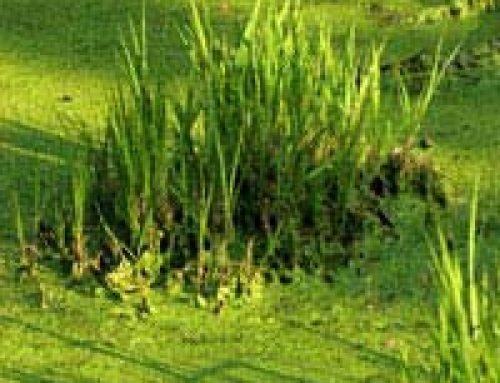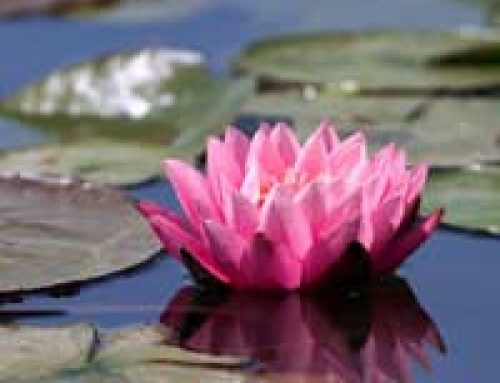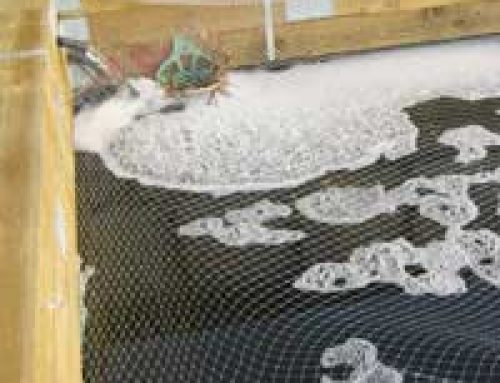
What an unusual problem – and one I know a good number of reptile enthusiasts (myself included) would love to have! I’m not sure where you live in the UK, but it sounds like snake-central – which is obviously bad news for you, if you don’t welcome their visits.
Fish Losses
Yes, grass snakes do eat pond fish. While their primary diet consists of amphibians such as frogs and toads, they also feed on fish and small rodents. They are known to frequent garden ponds in search of their prey, particularly during the summer months. If you have a pond in your garden, it’s not unusual to see grass snakes around it. However, they are unlikely to pose a threat to larger fish, and their presence can actually be beneficial as they help control the frog population. If you want to protect your fish from grass snakes, you can install a mesh cover over the pond to prevent them from getting in. It’s important to remember that grass snakes are a protected species in the UK, and it is illegal to harm or kill them.
Habitat
It’s also a bit unusual for adders and grass snakes to co-exist so closely.
Although adders in the northern parts of their range (which means the UK and much of Scandinavia) are less fussy about it than their southern counterparts, as a general rule, adders tend to be creatures of heaths, moorland and the edges of woodland. Despite the “beware of adders” signs that landowners sometimes use to put off prospective picnickers, adders are seldom found in marshy wetlands – so I’m left intrigued about why they should be visiting your pond. Perhaps, if your garden is a particularly large one, there may be a population of mice that would interest them – rather than the pond itself – and it’s just chance that you’ve spotted them by the water’s edge.
Both species tend to be fairly territorial, with a fairly clearly defined home range, so the logical conclusion would be that your pond forms part of that – but why you have adders sharing what sounds like an ideal grass snake habitat is baffling.
Relocation
All snakes enjoy a degree of legal protection, principally under the Wildlife and Countryside Act. If you are wanting to relocate animals, you’d probably be well advised to contact your local wildlife trust in the first instance, who should be able to give you some good advice and will most likely come out to have a look at the problem first hand. Their knowledge of the local snake populations and contacts with experts in the area is something that’s certainly worth having. With adders being our only poisonous snake, how you move them – and where too – can be a contentious issue, so for your own sake it’s a good idea to get some professional input to avoid any possible comeback later.
Keeping snakes away from your pond isn’t going to be easy; they are remarkably good at getting under, round or over most barriers. It might be worth making sure that your compost heap is far away from the pond itself, since grass snakes naturally lay their eggs in rotting vegetation, the heat generated acting as an incubator to keep them warm until they hatch. If you are inadvertently providing a grass snake nursery, it might go a long way towards explaining the numbers you’re seeing.
Having said all of that, unless you really are certain that they are eating your fish – or you simply can’t abide snakes – there’s a lot to be said for accepting them as part of the scenery and enjoying their visits. British reptiles are under a great deal of pressure and the wholesale drainage of traditional sites has made life difficult for grass snakes especially; there’s a lot to be said for giving them a home, if you possibly can (but I must admit I’m biased – I really like snakes!).
Hopefully you can find a solution that will work out for you and your slithery visitors.
Grass snake FAQs
Is a grass snake harmful?
Grass snakes, which are non-venomous, are not dangerous to humans. They are the most common snake species found in the United Kingdom, and their presence in the country is not a cause for concern.
How common are grass snakes in the UK?
The UK’s most frequently encountered snake species is the grass snake, or Natrix helvetica, which is grey-green with black stripes down its sides and a yellow and black “collar” around its neck. They are found throughout England and Wales but not in Scotland. Grass snakes prefer living close to water because they feed on fish and amphibians, so you might find them near garden ponds.
Are grass snakes protected in the UK?
Yes, under the Wildlife and Countryside Act of 1981, grass snakes are a protected species in the UK. They are also a Priority Species under the UK Post-2010 Biodiversity Framework, which means that they cannot be deliberately killed, injured, or traded in any way.
Are grass snakes active at night?
Grass snakes are diurnal creatures and are active during the day, sometimes sunbathing on trees‘ lower branches or in a trunk’s fork.
Can grass snakes harm dogs?
Grass snakes, despite being larger in size, are unlikely to harm your pet as they are not venomous. When threatened, they emit unpleasant odors to deter predators. However, there is a risk that they might bite if cornered.
Can a grass snake bite you?
Grass snakes, while generally not aggressive, can display defensive behaviour if they feel cornered. They may inflate their bodies, hiss loudly, and make striking movements with their mouths closed. Although rare, they can bite humans.
Can grass snakes climb?
Grass snakes do not climb much and can reach the top of their enclosure without any decorative climbing items. A guard must surround the basking lamp to ensure that the snakes cannot reach it.
Can grass snakes go in water?
Grass snakes are excellent swimmers and can often be seen swimming across open water, particularly when disturbed from their sunbathing spots. During the summer months, they are known to frequent garden ponds in search of their favorite prey: fish and amphibians.
Do grass snakes swim in ponds?
Garden ponds are a popular destination for grass snakes, particularly during the warmer months. They can swim well and often hunt for their favorite foods in the water. If you are lucky and quiet, you might be able to spot one.
How long can grass snakes stay underwater?
Grass snakes, also known as Natrix natrix, are well-adapted swimmers and can remain submerged for more than 30 minutes.
How can you tell an adder from a grass snake?
Adders and grass snakes can be differentiated by the dark zigzag pattern on the adder’s back, which is absent in grass snakes. Both snakes can be found living in mosslands. However, male adders have a black zigzag pattern while females have more brownish markings.
Can snakes in the UK swim?
Grass snakes are the largest snake species in Britain, reaching up to approximately 1.3 meters in length. They have a round pupil, green back with dark bars, and a black and cream or white collar at the base of the head. They are also proficient swimmers.
What do I do if I find a grass snake?
The best thing to do if you encounter a grass snake is to leave it alone. Grass snakes are natural predators of frogs and fish, and one snake will not significantly impact their populations. They often hunt in water and are known to prey on amphibians and fish in garden ponds.
What should I do if I find a snake in my garden UK?
If you come across a native British snake in your garden or in the wild, it is best to leave it undisturbed. You only need to contact the authorities if the snake appears to be injured or wounded. However, if you find a non-native snake species, you should keep your distance and contact the relevant advice line.
What time of year do grass snakes hatch?
Grass snakes are the only egg-laying snake species in Britain. Females lay eggs in June or July, often in decaying vegetation, including garden compost heaps, which provide an ideal incubation environment. The eggs hatch into miniature versions of the adult snakes in the late summer months.
What attracts grass snakes?
In addition to ponds, grass snakes are attracted to compost heaps because the heat generated within them is ideal for incubating their eggs. Compost heaps should be large and easily accessible and located near rough vegetation where the snakes can seek shelter.
How do you tell if a snake is a grass snake?
Grass snakes are easily distinguishable from other snake species in the UK because they lack the dark zigzag pattern on their backs that adders have. Instead, grass snakes are gray-green with black stripes along their sides and a yellow and black “collar” around their necks.
Last Modified: April 5, 2023






I keep getting snakes in my pond they are gold all most the same color as my koi I think they are eating my fish Is there any thing I can do
Wondering why the tadpoles were all disappearing from my garden pond, today I saw a large grass snake swimming through the water. Frog numbers are declining so what can I do to help the tadpoles?
I’m afraid my experience is grass snakes DO eat the fish in our pond. We live on the edge of a common/heathland and they wait at the bottom of the pond – or find a nook or crannie on the bank – in wait for fish. We have caught them in the past – easier said than done – and put them in a hessian sack and take them to the other side of the common about a mile away. This has been happening for many many years so they are definitely after the fish as we have seen them take them. I dont think the same ones come back once we have moved them. Judging by the numbers in our area I don’t think they are in any danger of extinction. We have a small one in our pond at present we are trying to catch.
Hi For those who think that grass snakes don’t take fish, I have just caught one dragging a large fish out of my pond, it reluctantly let go once the fish was on the ground and we flapped at it.
Thanks for this article, it has helped me identify the snake which is visiting my pond and reassured me that my recent fish loss isn’t its fault. I have disturb it a number of times when visiting the pond and generally it takes fright and swims for cover.
Nonsense! We have a grass snake which is eating our goldfish – daily and I have photos which I can post. We also have vipers and live in the Centre of France….
A few years ago I had a small dead adder on the path in my garden indetified by photograph There was no sign of any others. Today, cleaning my pond , which is full of water lilies, a snake about 36cm long and 2cm diameter swam very quickly and disappeared under the water foliage. It was silvery in colour, but I was unable the see any other markings due the supprise it gave me and the speed it moved. It seems to be an adder, has anyone any suggestions as to its identity and removing it since we are not particularly fond on any reptiles
I have a pond in which several fish are spawning without problem except one particular fish which is head down and full with eggs,the fishes vent appears swollen and very red .I have tried to express the eggs but without success ,Any suggestions would be welcome as the fish is clearly in distress.Many thanks Pete.
I get a lot of frog spawn but never any toads. Would the tadpols live happily together if I was to get hold of some ?